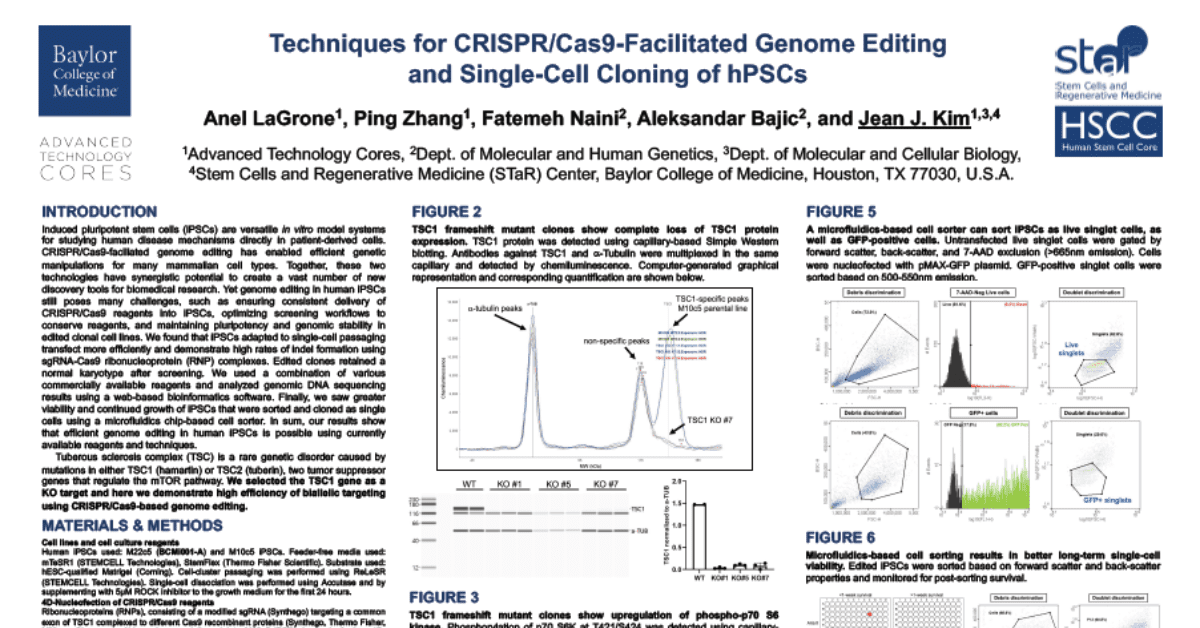Techniques for CRISPR/Cas9-Facilitated Genome Editing and Single-Cell Cloning of hPSCs

Introduction
Induced pluripotent stem cells (iPSCs) are versatile in vitro model systems for studying human disease mechanisms directly in patient-derived cells. CRISPR/Cas9-faciliated genome editing has enabled efficient genetic manipulations for many mammalian cell types. Together, these two technologies have synergistic potential to create a vast number of new discovery tools for biomedical research. Yet genome editing in human iPSCs still poses many challenges, such as ensuring consistent delivery of CRISPR/Cas9 reagents into iPSCs, optimizing screening workflows to conserve reagents, and maintaining pluripotency and genomic stability in edited clonal cell lines. We found that iPSCs adapted to single-cell passaging transfect more efficiently and demonstrate high rates of indel formation using sgRNA-Cas9 ribonucleoprotein (RNP) complexes. Edited clones retained a normal karyotype after screening. We used a combination of various commercially available reagents and analyzed genomic DNA sequencing results using a web-based bioinformatics software. Finally, we saw greater viability and continued growth of iPSCs that were sorted and cloned as single cells using a microfluidics chip-based cell sorter. In sum, our results show that efficient genome editing in human iPSCs is possible using currently available reagents and techniques. Tuberous sclerosis complex (TSC) is a rare genetic disorder caused by mutations in either TSC1 (hamartin) or TSC2 (tuberin), two tumor suppressor genes that regulate the mTOR pathway. We selected the TSC1 gene as a KO target and here we demonstrate high efficiency of biallelic targeting using CRISPR/Cas9-based genome editing.
PST- 003
